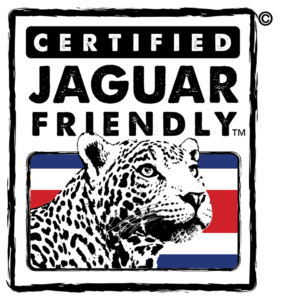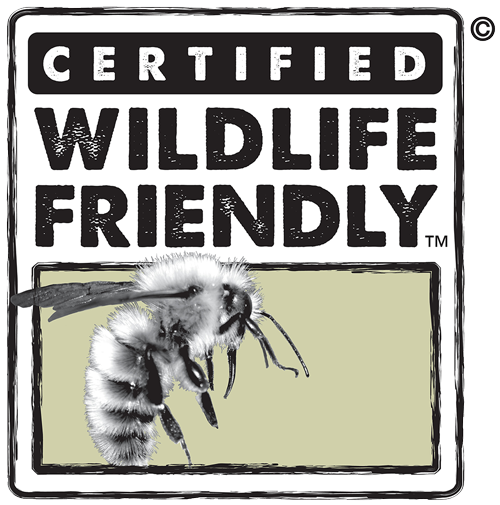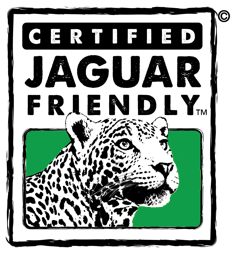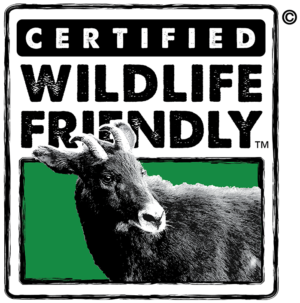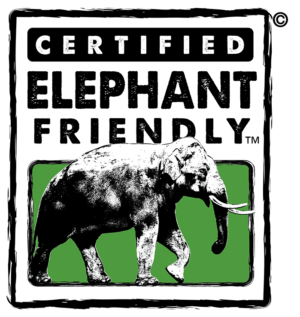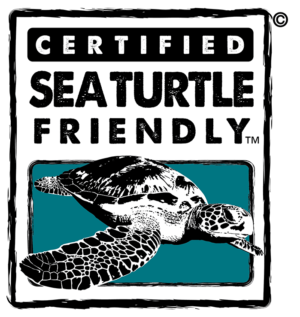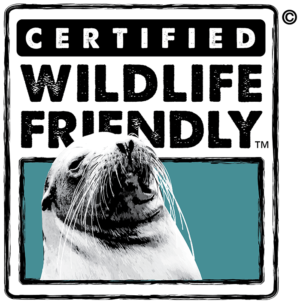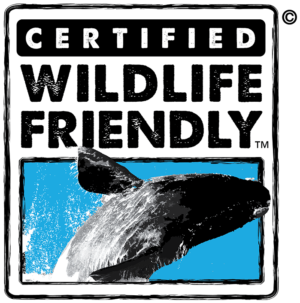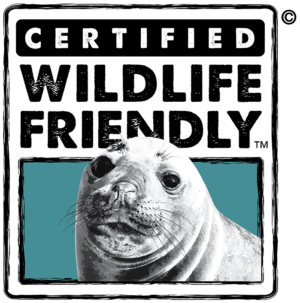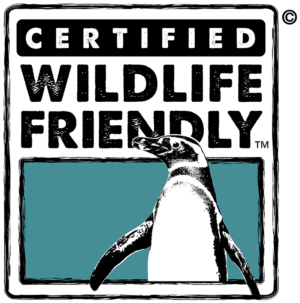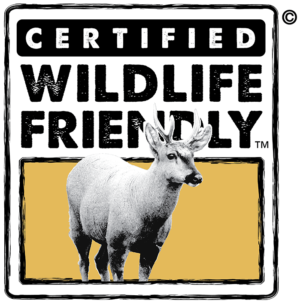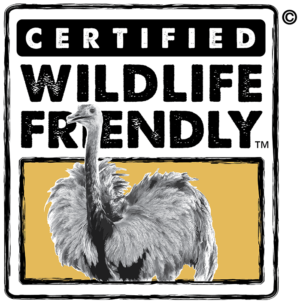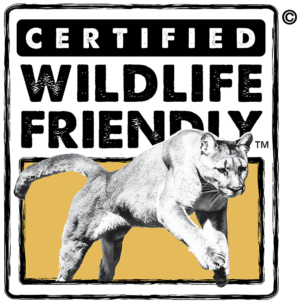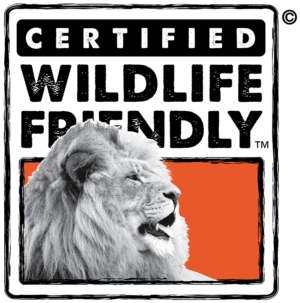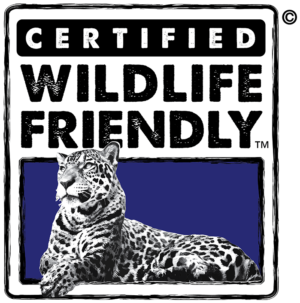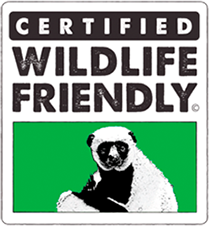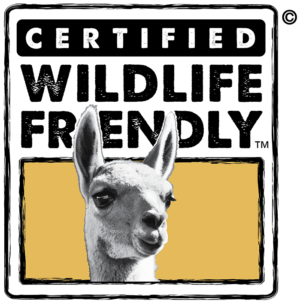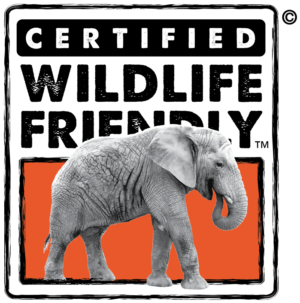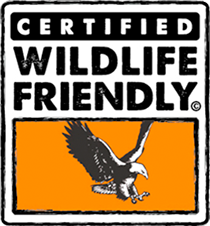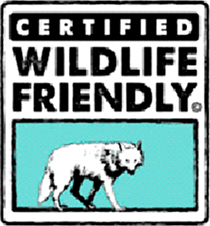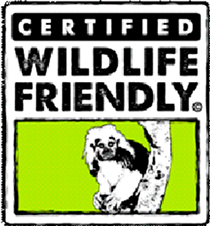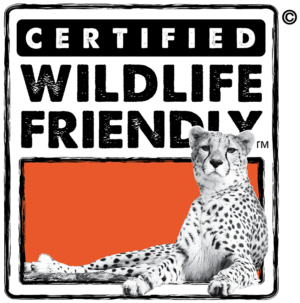World’s First Jaguar Friendly™ Coffee Launched by Phoenix Zoo, Press Coffee Roasters, ProCAT & WFEN
Pura Vida Roast Helps Protect Wildlife, People and Landscape
FOR IMMEDIATE RELEASE
(Phoenix, Ariz.) A new Arizona-roasted coffee will let you wake up and help save jaguars. The Arizona Center for Nature Conservation (ACNC)/Phoenix Zoo and Press Coffee Roasters introduce Pura Vida this week – the first certified Jaguar Friendly™ coffee produced in the U.S. The 12-ounce bags of whole beans go on sale at all Press Coffee locations and the Phoenix Zoo today with a portion of the proceeds supporting jaguar research led by the ACNC and ProCAT, an international nongovernmental organization focused on wildlife and habitat conservation.
In this first effort of the Jaguar Conservation Coffee project, the ACNC and ProCAT are working with Finca Las Alturas ranch in Costa Rica to support a landscape where farmers, jaguars and other wildlife co-exist. Jaguars are in decline in the wild due mainly to illegal hunting and habitat loss, with the overall jaguar population estimated to occupy less than 50 percent of its former range.
The ACNC’s Field Conservation Research Director, Dr. Jan Schipper, and other researchers have been working to design a habitat corridor that links Las Alturas with the Osa Peninsula, home to Costa Rica’s most threatened jaguar population. These two areas are separated by farms, plantations, homes, businesses and busy highways, thus, separating jaguars from the prey they need.
ACNC and ProCAT encourage growers in the corridor to adopt “jaguar-friendly” practices such as organic, pesticide-free farming, not allowing hunting on their land, and maintaining a mix of coffee and native trees/shrubs to provide animals with food and shelter. These practices are beneficial to all wildlife in the region, not just jaguars.
“Most of the landscapes between protected areas, areas that species need to cross to maintain natural connectivity, are dominated by people,” says Schipper. “We see this effort as an opportunity to promote species conservation together with local communities by exploring production systems that help reconnect native habitats.”
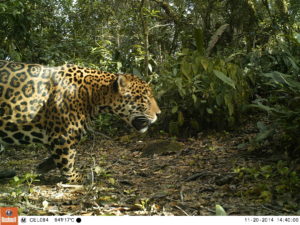
photo (c) ProCAT
Not only is this southern part of Costa Rica home to one of the largest populations of jaguars in that country, Costa Rica is also renowned as one of the most richly diverse coffee regions in the world.
“We are thrilled to welcome Jaguar Friendly™ coffee into our growing family of brands,” said Julie Stein, Executive Director and co-founder of the Wildlife Friendly Enterprise Network (WFEN). “By using certification as an innovative conservation tool we can achieve conservation goals while supporting local farmers in jaguar range countries and share these incredible stories of coexistence with aspirational consumers around the world. It’s truly a triple bottom line win.”
“This collaboration is such a special and unique opportunity for anyone in the coffee industry,” said Steve Kraus, owner of Press Coffee Roasters. “We’re honored to be able to partner with the Phoenix Zoo and work directly with Finca Las Alturas to bring this coffee and awareness of their conservation efforts to our community.”
Kraus describes the Pura Vida as creamy with notes of caramel and nougat. It’s an outstanding example of Costa Rican single origin roasts, he said.
Pura Vida is available for $16 for a 12-ounce bag of whole beans with $5 of the proceeds going to support ACNC and ProCAT’s jaguar conservation efforts. It’s available at Press Coffee’s six Phoenix locations and at the Phoenix Zoo. It is also available online at presscoffee.com and can be shipped worldwide.
About Press Coffee Roasters
Press has been Phoenix’ local coffee roaster since 2008. It shares its passion for specialty coffee by providing the highest quality coffee products, service and knowledge with customers and community every day. Named Phoenix’ best roaster two years running, Press Coffee has five Valley locations in Scottsdale, Tempe, Phoenix and Chandler. Visit Press Coffee online at presscoffee.com and on Facebook, Twitter and Instagram @presscoffee.
About the Arizona Center for Nature Conservation
The Arizona Center for Nature Conservation operates the Phoenix Zoo and the South Mountain Environmental Education Center. The ACNC advances the stewardship and conservation of animals and their habitats while providing experiences that inspire people and motivate them to care for the natural world.
The Phoenix Zoo is the only zoo in the Valley accredited by the Association of Zoos and Aquariums and is a non-profit zoological park, serving 1.3 million guests annually. The Zoo is home to more than 3,000 animals, many of which are endangered and threatened species. For information on upcoming events, exhibits and activities at the Phoenix Zoo, visit phoenixzoo.org. For information about the South Mountain Environmental Education Center, visit smeec.org.
About ProCAT
ProCAT, Proyecto de Conservacion de Aguas y Tierras (Water and Land Conservation Project), is a non-profit organization dedicated to the research and conservation of species and ecosystems, including the human component, from an interdisciplinary approach. Its purpose is the conservation of ecosystems, species and cultural wealth, integrating scientific, traditional and cultural knowledge; in search of the well-being of both biodiversity and human communities. For more information, visit (www.procat-conservation.org).
About Wildlife Friendly Enterprise Network (WFEN)
WFEN represents grassroots farmers, ranchers, artisans, indigenous peoples and conservation heroes from around the world including two World Bank Development Marketplace Award winners, a U.N. Equator Prize winner, leadership in the world’s marketplace for REDD+ Carbon Offsets and a Time Hero for the Planet. Certified products contribute to the conservation of over twelve million hectares of diverse wetlands, forests, and grasslands; protect keystone endangered species in Asia, Africa, Europe, and the Americas; and benefit over 200,000 people through increased food security, income and employment. For more information visit: www.wildlifefriendly.org
PRESS COFFEE MEDIA CONTACT:
Angela Muniz – Tin Can Marketing
480-966-2179; angela@tincanmarketing.com
PHOENIX ZOO MEDIA CONTACT:
Linda Hardwick
602-663-3254; lhardwick@phoenixzoo.org
First-of-its-kind Certified Jaguar Friendly™ label will empower farmers and ranchers, consumers and businesses to protect the largest wild cat in the Western Hemisphere
FOR IMMEDIATE RELEASE
Bogotá, Colombia, Heredia, Costa Rica – MAY 04 2016 The Wildlife Friendly Enterprise Network (WFEN) and Proyecto de conservación de Aguas y Tierras (ProCAT Colombia)-Colombia and Sierra to Sea Institute (S2S) – Costa Rica, announce a new collaborative effort to harness market forces for big cat conservation called Jaguar Friendly™. Farmers, ranchers and agricultural producers in these three important jaguar range countries will put in place Jaguar Friendly™ farming practices that maintain forest canopy to protect these iconic cats in rural agricultural landscapes and enable connectivity between protected areas. Through this initiative, companies that source products grown on land actively used by jaguars will 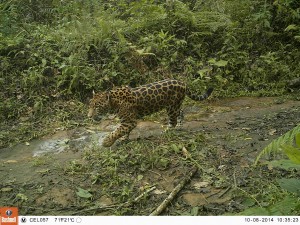
“We are really excited about the Jaguar Friendly™ initiative” said WFEN Director Julie Stein, “because it will allow us to test the idea of using certification, incentives, and market forces to ensure safe passage for these cats as they leave protected areas and move across agricultural lands, where they sometimes come into conflict with people or livestock. Global consumers are increasingly aware that wildlife, especially large carnivores, are often the invisible collateral damage of our food production systems.
Jaguar Friendly™ will give them a way to vote for coexistence with their wallets.”
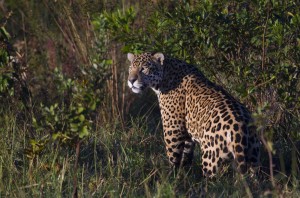
Dr. José F. González-Maya, the Scientific Director for ProCAT Colombia and The Sierra to Sea Institute,Costa Rica, has been advocating for this change as well. “By promoting ‘predator-friendly’ agricultural practices, the Jaguar Friendly™ initiative provides incentives for farmers making jaguars an asset rather than a threat,” said Dr. González-Maya.
“We live in a world where humans are part of the economy of nature, whether we like it or not. Our ultimate vision is to create an economy that supports nature rather than working against it,” said Dr. Jan Schipper, Postdoctoral fellow for Arizona State University and the Arizona Centre for Nature Conservation/Phoenix Zoo and cofounder of Sierra To Sea Institute, Costa Rica. “If we succeed, we will have a healthier planet. We must empower local people who hold the future of these native animals in their hands to celebrate them and see them as a sign of successful land restoration. The Jaguar Friendly™ initiative will be a catalyst to include biodiversity in the sustainability movement.”
While Jaguars still exist in 18 countries from Mexico to Argentina, they have been eradicated from 40% of their historic range and are extinct in Uruguay and El Salvador. A jaguar was recently documented on video in the U.S. Yet, there has not been evidence of a U.S. breeding population for more than 50 years. Top threats to the jaguar include deforestation, habitat fragmentation and persecution by humans.
##
About ProCAT-Colombia and Sierra to Sea Costa Rica
ProCAT Colombia and Sierra to Sea Costa Rica are sister NGOs that work to develop biological research and to promote social and cultural sustainable development goals using and interdisciplinary approach including the human and natural dimensions of wild felid conflicts. This integrated conservation strategy to protect key species and vulnerable ecosystems in Talamanca, Costa Rica, and the Andes and Caribbean regions of Colombia works to ensure the wellbeing of biodiversity and humans in functional landscapes with shared benefits.www.procat-conservation.org
About Wildlife Friendly Enterprise Network
WFEN and its Certified Wildlife Friendly®, Predator Friendly®, Certified Gorilla Friendly™, and Jaguar Friendly™ certification programs represent grassroots farmers, ranchers, artisans, indigenous communities and conservation heroes from around the world including two World Bank Development Marketplace Award winners, a U.N. Equator Prize winner, leadership in the world’s marketplace for REDD+ Carbon Offsets, a Time Hero for the Planet, and a National Geographic Big Cats Initiative grantee. Certified Wildlife Friendly® products contribute to the conservation of over twelve million hectares of diverse wetlands, forests, and grasslands; protect keystone endangered species in Asia, Africa, Europe, the Americas, including the Snow Leopard, Elephant, Cheetah, and Wolf; and benefit over 200,000 people through increased food security, income and employment. For more information visit: www.wildlifefriendly.org
Contacts:
Julie Stein, Executive Director
Wildlife Friendly Enterprise Network
julie@wildlifefriendly.org
José F. González-Maya, Scientific Director
Diego Zárrate-Charry, Research Coordinator
ProCAT Colombia & Sierra to Sea Costa Rica
jfgonzalez@procat-conservation.org
dzarrate@procat-conservation.org

